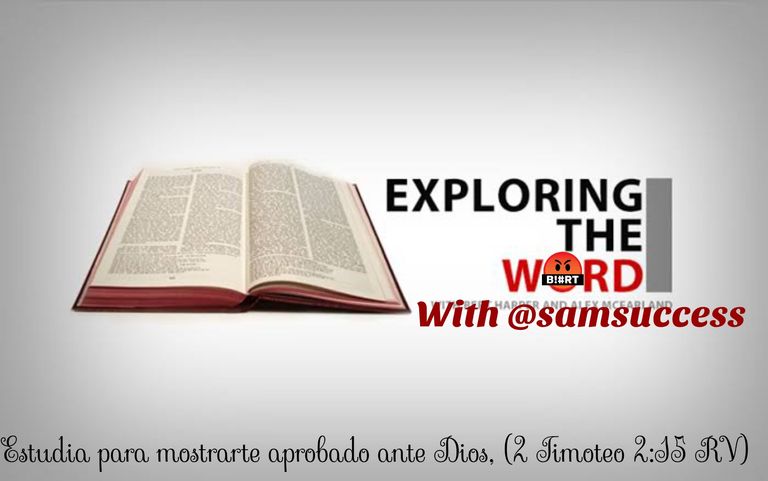Happy new month to all my friends here @blurt.
I never thought much about who my ancestors were until I started to compile my father’s family tree. It didn’t take long for me to see myself in the stories of these people who lived so long ago. It was amazing to me how our family line affects who we are. With a brother who was adopted by my father and a house full of adopted children, I always wanted to believe that how we love and raise our kids matters more than whose blood courses through their veins. What I discovered was very different. I found that my father’s ancestors carried the same traits, values, and talents through the generations.
Though spaced hundreds of years apart, his ancestors were predominantly soldiers, sailors, and preachers. Story after story revealed the connecting thread between my ancestors. Great and small, these men and women possessed many of the same interests and talents. What I loved the most was the faith that was professed generation after generation (Matthew 1:1-17).

If you had asked me a few years ago whether I believed in nature or nurture, I would have given you a solid answer of “Nurture!” Now, I cannot deny the role nature (or our biological connections) has to play in our lives. How we are raised obviously matters.
Breaking generational curses happens with beautiful results. We are not doomed to repeat the mistakes of generations past, but we are influenced by them. Values are carried down from parent to child. Gifts are passed along with eye color and body type. Whom we descend from plays a part in who we are, whether we like it or not.
Matthew begins by giving us the ancestors of Jesus. From the very beginning he wanted to establish Jesus’ claim to the throne of David and right to being the Messiah. Matthew’s genealogy focuses on Jesus’ legal ancestry through his adopted father, Joseph. (Luke gives us his connection to David through his mother, Mary.) What we need to understand is how the ancient Jews wrote their genealogies. Our way of thinking of family trees and genealogies is that every member (or at least direct member) of the tree should be listed.
However, the Jews condense their genealogies to include only the people important for making the point they are achieving. For instance: George might be listed as the ‘son of Philip’ when George’s father’s name is Kevin and his grandfather’s name is Philip or even his great-grandfather. The family line is still maintained without adding a bunch of people that would distract the reader. This means that the people Matthew chose to add to Jesus’ family line are important. Each member was chosen for a specific reason.

If I were making a list of my ancestors, I would leave out the people whose story came with scandal. I most likely would not highlight former prostitutes, obscure people we know nothing about, or people whose claim to fame was being destitute. Yet, these are the people Matthew chose to include in his genealogy.
Matthew included women like Tamar who pretended to be a prostitute to conceive; Rahab who truly was a prostitute; the son of destitute woman from one of the enemies of Israel, and many people who lived simple and obscure lives. Meyer noted,
“Men and women, notorious for their evil character, lie in the direct line of his descent. This was permitted, that He might fully represent our fallen race.”
Jesus is a messiah we can all identify with. He was perfect, yet he understood the fallen. He was familiar with the sins we struggle with even though he did not partake in them. Though he has every right to condemn us, he choses forgiveness and mercy.
The family history of the Son of Man is important because we all have one. We all have a series of men and women who lived, died, and passed on a bit of who they were to us. There could be no better lineage for the savior of the world. Because God chose the great and the small, the faithful and the faltering, the bold and the weak to make up the family

He would place His son into, we can all see ourselves among the names. We are not perfect. Neither were they. We struggle. So did they. We may not live lives that anyone wants to write a book about, many of these men and women left nothing more than their name on the history books.
Jesus came for every person, great and small. His family tree was important to the Jew to whom Matthew wrote. It proved he had the right to claim to be the messiah. None of his adversaries disputed his family connection to King David and right to the throne. However, the genealogy of Jesus is important to us as well. It shows us that we are all welcome. Jesus was a poor and simple man, descended from kings and vagabonds, rich and poor, Gentile and Jew.
Truly he calls to all people. It doesn’t matter who we were. It doesn’t matter how the world sees us. All can be part of the family of Christ.
Shalom.
[ESPAÑOL]
Nunca pensé mucho en quiénes eran mis antepasados hasta que comencé a compilar el árbol genealógico de mi padre. No me tomó mucho tiempo verme en las historias de estas personas que vivieron hace tanto tiempo. Fue sorprendente para mí cómo nuestra línea familiar afecta quiénes somos. Con un hermano que fue adoptado por mi padre y una casa llena de niños adoptados, siempre quise creer que la forma en que amamos y criamos a nuestros hijos es más importante que la sangre que corre por sus venas. Lo que descubrí fue muy diferente. Descubrí que los antepasados de mi padre tenían los mismos rasgos, valores y talentos a través de las generaciones.
Aunque separados por cientos de años, sus antepasados eran predominantemente soldados, marineros y predicadores. Historia tras historia revelaron el hilo conductor entre mis antepasados. Grandes y pequeños, estos hombres y mujeres poseían muchos de los mismos intereses y talentos. Lo que más amaba era la fe que se profesaba generación tras generación (Mateo 1:1-17).

Si me hubieras preguntado hace unos años si creía en la naturaleza o en la crianza, te habría dado una respuesta sólida de “¡Nutrir!” Ahora bien, no puedo negar el papel que la naturaleza (o nuestras conexiones biológicas) tiene que jugar en nuestras vidas. La forma en que somos criados obviamente importa.
Romper maldiciones generacionales sucede con hermosos resultados. No estamos condenados a repetir los errores de generaciones pasadas, pero estamos influenciados por ellos. Los valores se transmiten de padres a hijos. Los regalos se transmiten junto con el color de ojos y el tipo de cuerpo. De quién descendemos juega un papel en lo que somos, nos guste o no.
Mateo comienza dándonos los antepasados de Jesús. Desde el principio quiso establecer el derecho de Jesús al trono de David y el derecho a ser el Mesías. La genealogía de Mateo se enfoca en la ascendencia legal de Jesús a través de su padre adoptivo, José. (Lucas nos da su conexión con David a través de su madre, María). Lo que necesitamos entender es cómo los antiguos judíos escribieron sus genealogías. Nuestra forma de pensar en los árboles genealógicos y las genealogías es que cada miembro (o al menos miembro directo) del árbol debe incluirse en la lista.
Sin embargo, los judíos condensan sus genealogías para incluir solo a las personas importantes para demostrar el punto que están logrando. Por ejemplo: George podría figurar como el "hijo de Philip" cuando el nombre del padre de George es Kevin y el nombre de su abuelo es Philip o incluso su bisabuelo. La línea familiar aún se mantiene sin agregar un montón de personas que distraigan al lector. Esto significa que las personas que Mateo eligió para agregar a la línea familiar de Jesús son importantes. Cada miembro fue elegido por una razón específica.

Si estuviera haciendo una lista de mis antepasados, dejaría fuera a las personas cuya historia generó escándalo. Lo más probable es que no destacaría a ex prostitutas, personas desconocidas de las que no sabemos nada, o personas cuyo reclamo a la fama fue la indigencia. Sin embargo, estas son las personas que Mateo eligió incluir en su genealogía.
Mateo incluyó a mujeres como Tamar que se hacían pasar por prostitutas para concebir; Rahab que verdaderamente era una prostituta; el hijo de una mujer indigente de uno de los enemigos de Israel, y muchas personas que vivían vidas sencillas y oscuras. Meyer señaló,
“Hombres y mujeres, notorios por su mal carácter, yacen en la línea directa de su descendencia. Esto fue permitido, para que Él pudiera representar completamente a nuestra raza caída.”
Jesús es un mesías con el que todos podemos identificarnos. Era perfecto, pero comprendía a los caídos. Estaba familiarizado con los pecados con los que luchamos aunque no participó en ellos. Aunque tiene todo el derecho de condenarnos, elige el perdón y la misericordia.
La historia familiar del Hijo del Hombre es importante porque todos tenemos una. Todos tenemos una serie de hombres y mujeres que vivieron, murieron y nos transmitieron un poco de lo que fueron. No podría haber mejor linaje para el salvador del mundo. Porque Dios escogió a los grandes y a los pequeños, a los fieles y a los vacilantes, a los audaces y a los débiles para formar la familia

Él pondría a Su hijo en, todos podemos vernos entre los nombres. No somos perfectos. Ellos tampoco. Luchamos. Ellos también. Puede que no vivamos vidas sobre las que alguien quiera escribir un libro, muchos de estos hombres y mujeres no dejaron nada más que su nombre en los libros de historia.
Jesús vino para cada persona, grande y pequeña. Su árbol genealógico era importante para el judío a quien escribió Mateo. Demostró que tenía derecho a reclamar ser el mesías. Ninguno de sus adversarios cuestionó su conexión familiar con el rey David y el derecho al trono. Sin embargo, la genealogía de Jesús también es importante para nosotros. Nos demuestra que todos somos bienvenidos. Jesús era un hombre pobre y sencillo, descendiente de reyes y vagabundos, ricos y pobres, gentiles y judíos.
Verdaderamente él llama a todas las personas. No importa quiénes éramos. No importa cómo nos vea el mundo. Todos pueden ser parte de la familia de Cristo.
Shalom.
